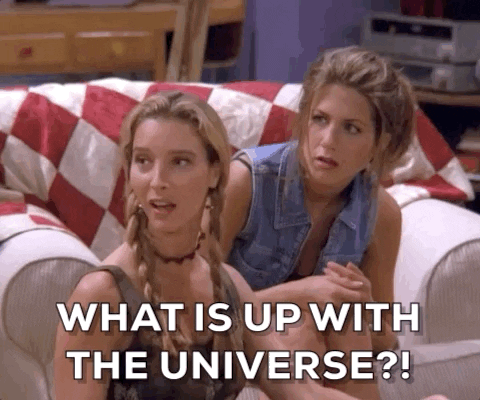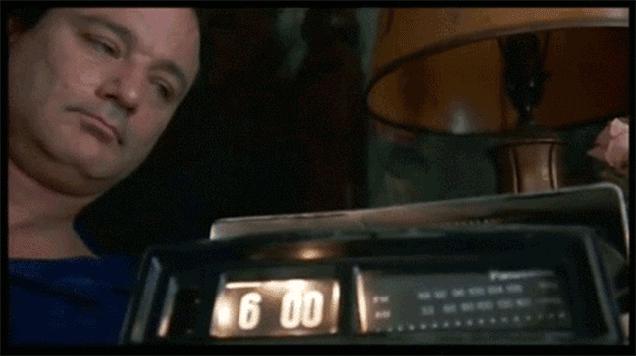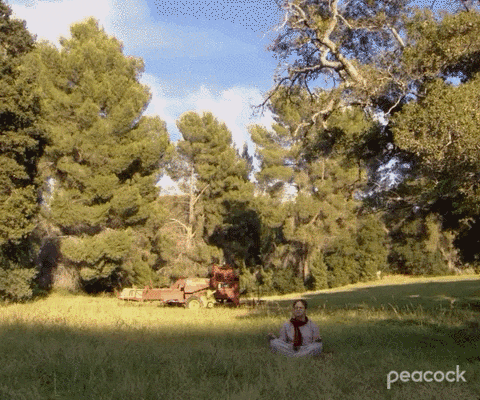Science & Tech
Becca Monaghan
May 11, 2022
This is Why People Often Turn to Astrology
Buzz60
Having a bad day? Mercury retrograde. Broken your phone this morning? Mercury retrograde. Had a sudden and unexpected breakup? Mercury retrograde.
It only takes a quick swipe through social media to see this cosmic event taking the blame for pretty much everything – and according to the age-old astrological theory, we are all influenced by its effects.
Astrologers have been examining Mercury retrograde for thousands of years, but it wasn't until 2010 when Google searches started to spike. Now, with the help of Instagram and the drive towards self-care and mindfulness, interest in astrology has heightened to a whole new level.
While Mercury retrograde is far too often viewed as a negative thing, it is also said to be the perfect time for self-reflection and growth.
Laura Hayes, certified astrologer and founder of the online astrology community, @astrohuns, spoke with Indy100 to break down this astrological phenomenon.
Sign up to our free Indy100 weekly newsletter
What does Mercury retrograde mean?
To put it simply, Mercury retrograde occurs when the planet Mercury – which takes 88 days to orbit the Sun, as opposed to Earth's 365 – appears to go backwards in its orbit.
In Astrology, Mercury – named after the Roman deity who served as a messenger to the gods – is the planet of communication and the mind.
Hayes explained: "Its placement in your birth chart affects how you think and communicate. Additionally, Mercury's transits at any given time will also have an impact on our thoughts and way of communicating."
How long does it last?
It tends to last around three to four weeks a time.
However, there is also a "shadow period" – or retroshade – before and after Mercury Retrograde. This can apparently make things "a little rocky."
"This Retroshade period lasts about 2-3 weeks and is almost like a diluted form of the retrograde itself," Hayes said.
"Therefore, you may begin to feel the effects of Mercury retrograde a few weeks before it begins and still feel its lingering effects for a few weeks afterwards."
How can it 'impact your life'?
Astrologically speaking, when Mercury is in retrograde, the areas of life associated with the planet are said to be affected.
"You are said to have verbal communication difficulties at this time, causing you to mishear someone or say the wrong thing, leading to arguments and misunderstandings," Hayes explained.
People can find themselves "stumbling over their words, saying the wrong thing, or struggling to think coherently altogether."
"Phones can lose signal; steamy texts to bae get sent to your boss instead, or your laptop breaks down when you're in the middle of writing your memoirs," she added.
"Travel is another area that gets messed up during Mercury Retrograde, so be careful on the road and make sure to double-check flight details before you book."
What can people do to deal with said 'effects'?
According to KJ Atlas, consulting astrologer, writer, and artist of the human aura, you shouldn't put your life on hold purely because Mercury is retrograde. Instead, she says it is a time to significantly slow down.
"You're more likely to make mistakes during this period, but if you listen to the call to take it easy, spend more time in self-care, go out less, and prioritize your mental and physical health, you'll be just fine," she explained.
"If you need to sign contracts, purchase something significant, or have a deep talk, just do so mindfully and do your due diligence."
Atlas acknowledged one positive rule of thumb: People are encouraged to do anything with the prefix 're'.
"If you’re in a situation that you don’t enjoy, you can use this period for reevaluation or rekindling, but wait to take action until the cycle has ended. This includes the pre and post shadow periods.
"People often jump right back into things that might be warnings during Mercury retrograde on the day that it’s technically over, but it’s good practice to wait a few days."
When does Mercury retrograde occur?
Mercury retrograde occurs three to four times per year. It tends to occur roughly around the same time each year. The dates* for this year are:
- January 14th - February 4th
- May 10th - June 3rd
- September 10th - October 2nd
- December 29th - January 18th (2023)
*dates based on GMT, so they may vary slightly in other time zones.
It's worth noting that astrology is not the same thing as astronomy.
Astrology is a belief system that the stars and planets allow us to 'read a person', predict the future or have the ability to alter our daily lives, as above. Astrology can be important to some cultures, but it is not based on scientific evidence.
Astronomy, however, is backed by data.
David J. Helfand, Professor of Astronomy and Columbia University Chair, slammed the astrological theory as "arrant nonsense."
Helfand explained that the retrograde motion of Mercury is a "simple consequence of the fact that we observe the sky from a moving platform we call Earth as it orbits the Sun. The other planets also orbit the Sun, all in the same direction."
"The apparent motion of any planet as observed from Earth is a combination of the orbit of the planet and the orbit of Earth," he added.
"Simple geometry shows that roughly three times a year (for Mercury – less often for other planets on longer orbits), these combined motions give the Earth-bound observer the illusion that the other planet has reversed its direction of motion compared to the background stars."
He stated that the orbit of Mercury is governed by laws of gravity and is completely unchanged, which has "been well-understood for over 400 years – it's hardly a new idea."
"But apparently, some people prefer 2000-year-old views of the world in which the planets govern their lives – no need to take any personal responsibility then, is there?"
"In fact, the gravitational force of Mercury on an Earth-bound you is less than the force of your dog on you when you pat him or her on the head," Helfand explained.
"Indeed, patting your dog on its head is likely to have a positive influence on your mood. Maybe people should try that instead of contemplating arrant nonsense about the planets."
Have your say in our news democracy. Click the upvote icon at the top of the page to help raise this article through the indy100 rankings.
Top 100
The Conversation (0)




















